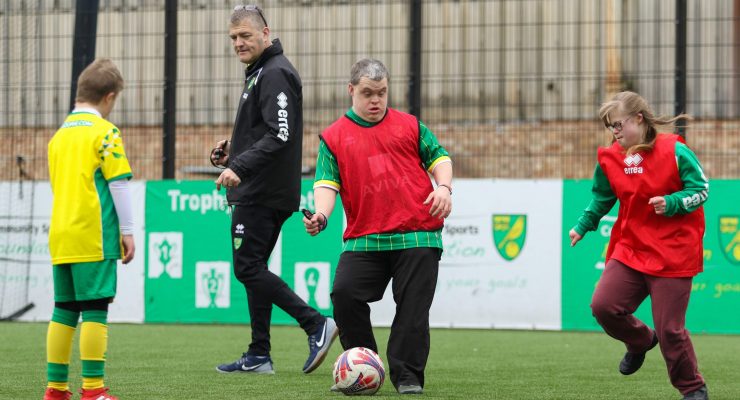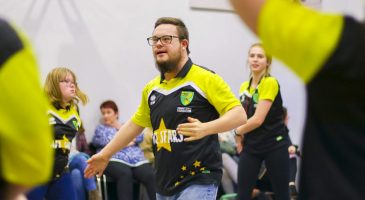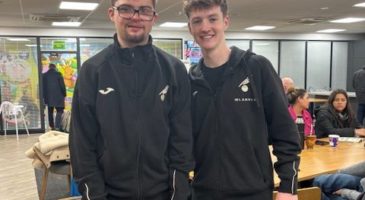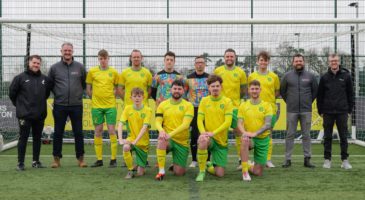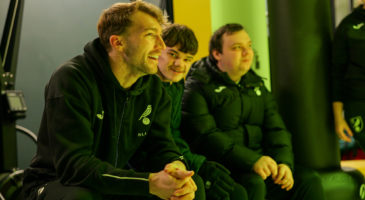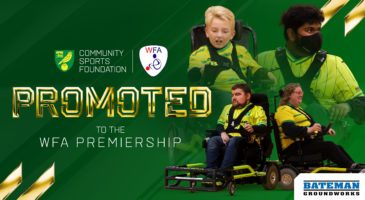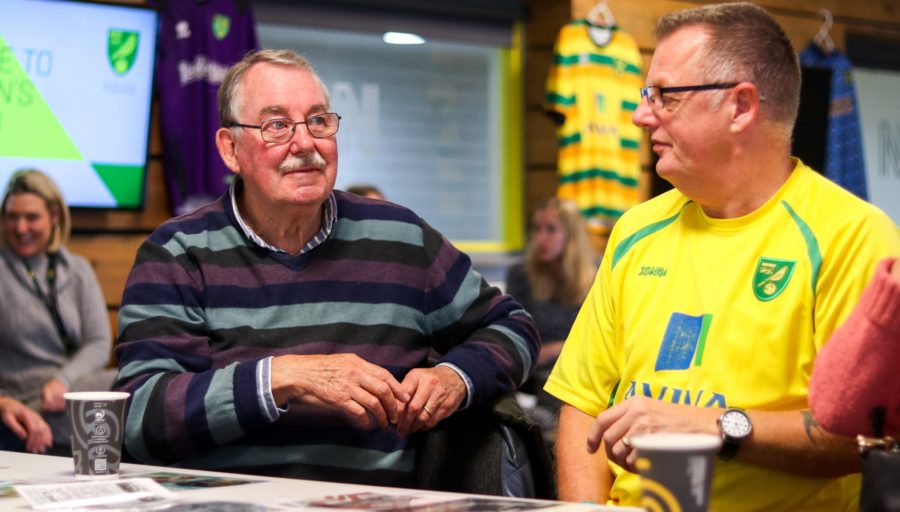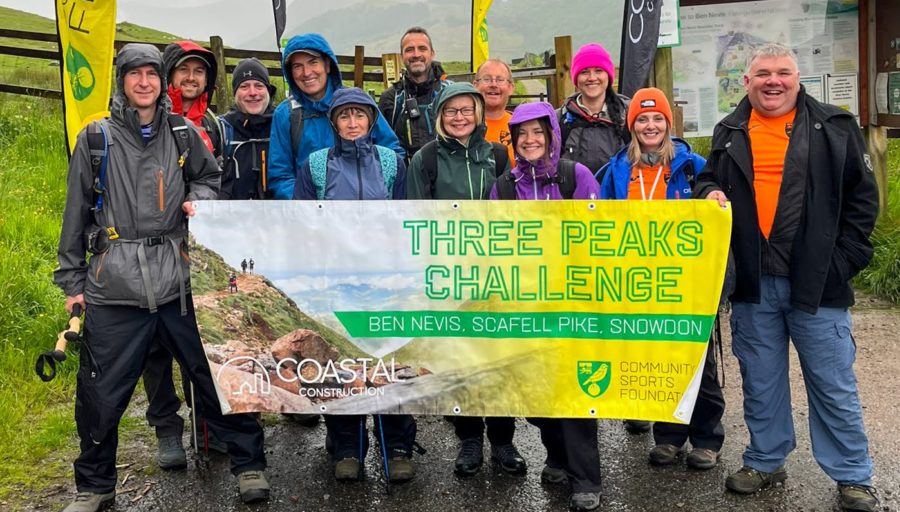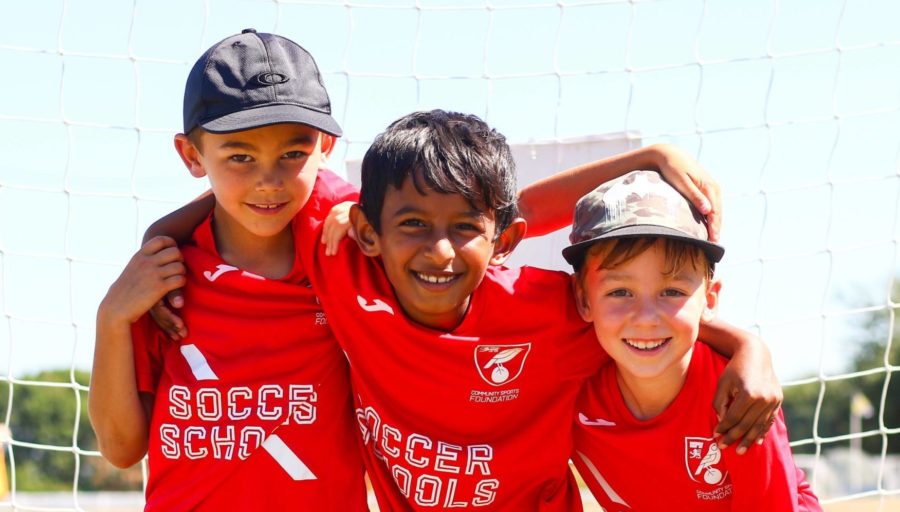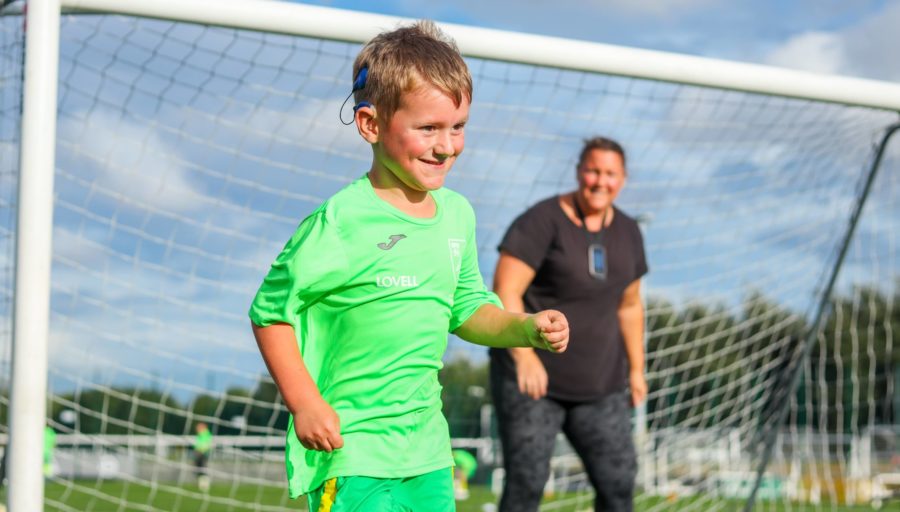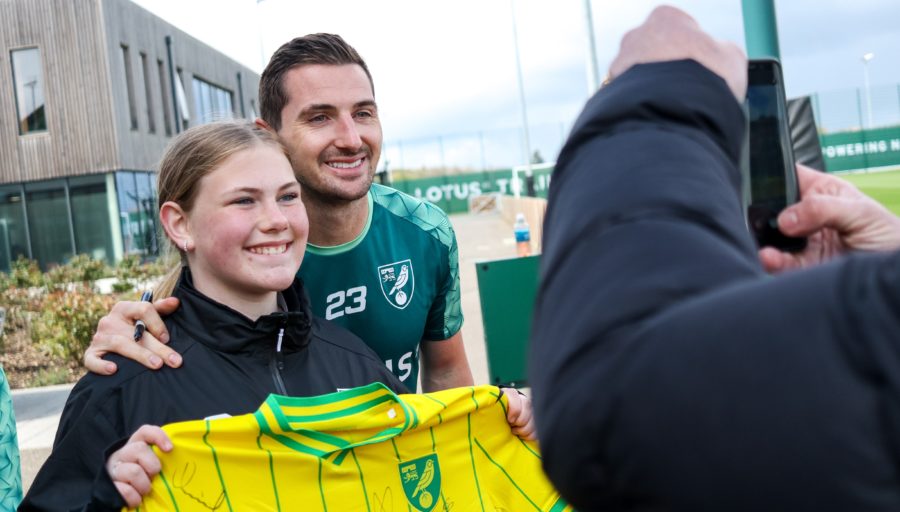Darren continues: “We supported a few of the families with emergency care packets, which were provided thanks to the Canaries COVID-19 Community Project. One of our adult participants, who cares for four children in a small maisonette, developed Covid-19 symptoms, so we maintained daily contact with him and his family to ensure they were coping, and arranged for regular delivery of supplies.”
“Through the conversations I had with the parents, the trickiest aspect of lockdown, especially for those with children with autism, was the major disruption to an established routine.”
Replacing a packed weekly schedule of sport sessions across a number of different programmes (not to mention matchday activity) has not been easy for Darren’s team, but a series of online catchups, quizzes and bingo sessions has been working well.
“It’s so important we maintain contact with our participants, and we become part of a new routine for them. Mentally, it’s really important they maintain their social connections, and a lot of them have friends at sessions they have been unable to see. It also allows us to offer some important respite time to parents or carers at home.”
One of these online sessions, a quiz with adults and children from the Foundation’s pan-disability football teams, was made particularly memorable when Canaries centre-back Christoph Zimmermann dialled in.
“Christoph is no stranger to the participants on our programmes. He’s often dropped by their training sessions before and has developed a real bond with some of them,” said Darren.
“He mentioned to me that he was keen to check-in with them during this time, so we arranged for him to join in with one our quiz evenings.”
“It was great for the participants to have him there, and we had a lot of fun. Incidentally, he actually won the quiz in the end. Though he probably should have, one of the rounds was about him!”
Some of the sport aspects of sessions have still been able to happen virtually.
The Disability Dance programme, which is part-funded by the Premier League, can run with a degree of normality, with CSF’s Dance coaches Lisa Chapman and Georgia Skipper guiding the participants through the series of exercises and routines.
“The multi-screen format works really well, and we usually have around 14 participants each week. We’ve even welcomed a couple of newcomers over this period.”
While the focus has been on supporting participants through the difficult present, what does the future look like?
“We got some added pressures, as a number of our participants are categorised as vulnerable, when it comes to the virus. Quite a few of our guys have respiratory problems. Sadly, this means it may be a while until we can hold physical sessions again for these groups.”
With many of the disability programmes reliant on funding raised through donations and the Community Sports Foundation’s fundraising events, many of which have been cancelled, there is a need for the Foundation to find alternative income streams to address an estimated overall loss of income in the region of £500k.
But Darren has been delighted by the response of the wider community to support this.
“We had lots of fundraisers take part in the 2.6 Challenge [a virtual fundraising initiative] for us, recently. Through the likes of running, cycling and even dance-a-thons, for example, we had around £23,000 raised for the Foundation.
“Many of our participants got involved, too. Liam Sayer, who attends our Cerebral Palsy Soccer Skill Centres and FA Para Talent Hub, alone raised over £2,100, which is phenomenal.”
Darren is hopeful that sessions will come back soon.
“Once it’s safe to do so, and we’ve received the go-ahead from the government and other organising bodies, we can bring back the sessions, even if they have to come back in a different form to before.”
“In the meantime, we’ll continue to meet regularly online, and hopefully continue to be an important part of our participant’s week.”

